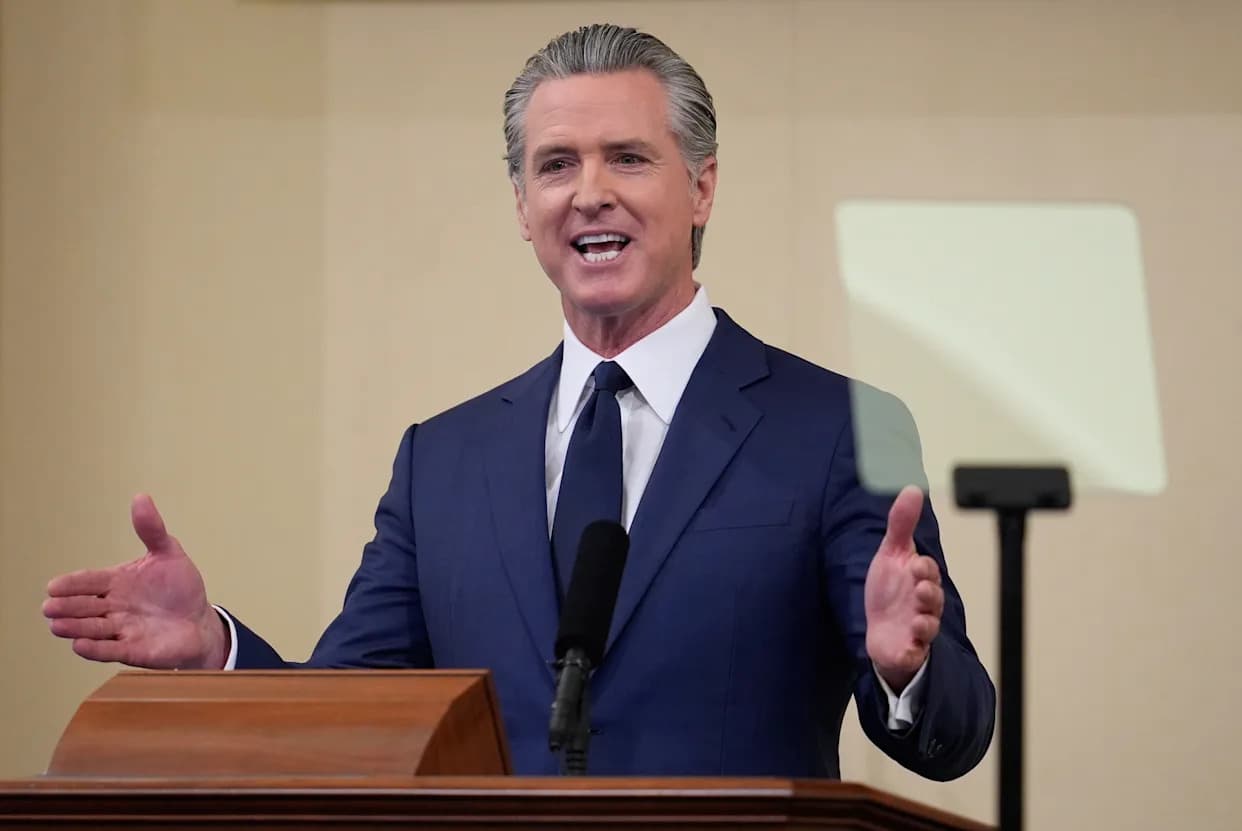As California's 2026 governor's race unfolds, the participation of transgender students in school sports has become a flashpoint. Eleven leading candidates gave distinct responses ranging from calls to repeal the law to defenses of current protections and proposals to leave eligibility to sports governing bodies. A April 2025 PPIC poll found 65% of Californians (71% of public-school parents) supported requiring teams to match sex assigned at birth. Candidates weighed fairness, safety and compassion while offering varied policy approaches.
California 2026: Where Governor Candidates Stand on Transgender Students in School Sports

As Californians look toward the 2026 governor's race, the participation of transgender students on school sports teams has emerged as a prominent and divisive issue. In a series of interviews conducted by correspondent Julie Watts, eleven leading candidates described where they stand on the state's law that allows students to play on teams that align with their gender identity.
Current law and public opinion
California law requires public schools to permit students to join sex-segregated sports teams and use facilities based on their gender identity, regardless of what is recorded in school files. An April 2025 poll from the Public Policy Institute of California found that 65% of Californians and 71% of public-school parents supported a Trump administration executive order that would require participation on teams matching the sex assigned at birth.
Where the candidates fall
The eleven candidates interviewed — Xavier Becerra, Chad Bianco, Ian Calderon, Stephen J. Cloobeck, Steve Hilton, Katie Porter, Tony Thurmond, Antonio Villaraigosa, Butch Ware, Betty Yee and Leo Zacky — offered a range of positions that generally grouped into four categories: repeal or restriction of the law; limited inclusion with eligibility rules; defense of the current law; and deference to sports governing bodies to set rules.
Oppose participation by transgender girls in girls' sports
Several candidates argued that transgender girls should not compete in girls' sports, citing fairness or safety. Republican Steve Hilton described the issue as protecting girls' opportunities and pledged to repeal the law. Republican Chad Bianco linked his opposition to safety and fairness and used strong language about locker-room privacy. Republican Leo Zacky framed the law as a "man-made decision" the public can change. Democrat Stephen J. Cloobeck said he would ask voters to reconsider the law and cited his scientific background to emphasize biological sex.
Concerned about competitive advantage but urging compassion
Some candidates said they believe transgender girls may have an athletic advantage yet stressed compassion. Former state assemblymember Ian Calderon said he does not support transgender girls competing in girls' sports as he currently understands the evidence, but he is open to updating his views. Betty Yee said she is still learning and suggested ideas such as separate leagues while emphasizing she does not want to cut opportunities for transgender students.
Defend the law or protect students' rights
California Superintendent of Public Instruction Tony Thurmond strongly defended the right of transgender students to participate on teams that align with their gender identity and emphasized safety and inclusion. Katie Porter also expressed support for the existing state law while noting she believes sports governing bodies play a key role in setting rules.
Defer to sports governing bodies
Several candidates — including Butch Ware and Xavier Becerra — said sports organizations, not the governor or legislature, should determine eligibility rules. Ware asked why the governor would be involved in day-to-day decisions about who plays which sport; Porter and Becerra echoed that governing bodies like the California Interscholastic Federation should set standards.
Nuanced positions
Antonio Villaraigosa drew a distinction based on puberty, expressing opposition to post-puberty transgender women competing against cisgender women while reiterating his opposition to discrimination and his support for gender-affirming care. Other candidates emphasized enforcement and safety concerns in school environments and the need to balance fairness, inclusion and legal obligations.
Key takeaways
The interviews reveal sharp divisions among leading candidates on whether policy should prioritize biological sex, gender identity, or deference to sports authorities. Across positions, candidates used appeals to fairness, safety and compassion. Voters can use these contrasts to assess how a future governor might approach the intersection of education policy, civil rights and competitive athletics.
Help us improve.


































